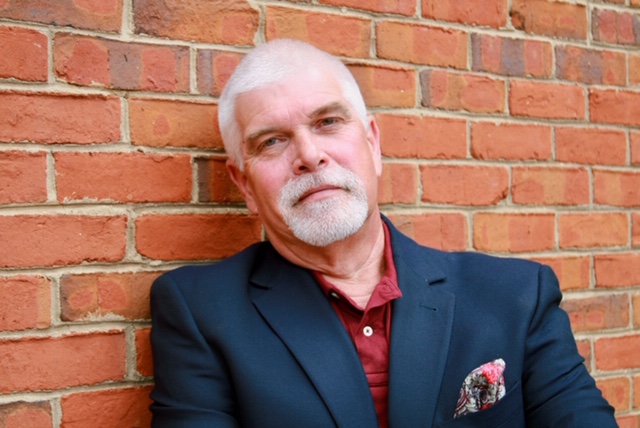By David White

The mission of the Jesus Worldview Initiative is to articulate and advance the following of Jesus as the defining priority of the Christian faith. Let that sink in for a moment.
Shouldn’t the defining priority of the Christian faith already be following Jesus?
Isn’t following Jesus the very definition of what it means to be Christian? Isn’t that redundant?
Sadly, no. Not any more. And it hasn’t been for a very long time.
The first-century understanding of what it meant to follow Jesus —to follow the Way — and our current, Western definitions (yes, plural) of the Christian faith are nowhere near the same.
The invitation Jesus extends is to an endeavor— not a club. Not a lifestyle choice. Not even a worldview as contemporarily defined.
Jesus invites us to practice a particular way of being as we follow his lead into the Kingdom of God.
This Kingdom living — the Way — is more than a priority in our lives. It is more than a core value or guiding principle.
It is more than a discipline. It is more than belief. It is more than a moral and behavioral standard— though all those things are good.
It is an embodiment. It is an essence or substance. It is a different sort of aliveness.
Early followers of Jesus understood what they were signing up for. They longed to live in the spirit of the ancient Jewish blessing that encouraged following their teacher so closely as to wind up being covered in the dust of their Rabbi.
These practitioners (or apprentices as Dallas Willard and John Mark Comer refer to them) called themselves Followers, or Followers of The Way, or Followers of Jesus, or — at times — disciples.
They did not self-identify as Christians. The term was not a part of their vernacular at first.
The word Christian only appears three times in the entire New Testament and even then, it was not used as a term of endearment. It was more likely used accusingly, or sarcastically, or as a slur.
The jeer would have been something akin to, “Who do you think you are? A mini messiah? A little Christ? Some kind of Jesus imitator?”
Somewhere along the way, some followers of Jesus apparently began to say, “Yes. That’s exactly what we are trying to be.”
They began to self-identify as Christians while hanging on to their understanding of endeavor and practice and embodiment. Being Christian was synonymous with being covered in the dust of the Rabbi.
That understanding changed. It may be impossible to pinpoint exactly when the descriptive word Christian started to jump off the rails.
Was it something more than a little run of the mill persecution that convinced Paul of Thebes to head to the desert?
Was it something more than a powerful sermon on Matthew 19 that drove Anthony the Great to follow suit?
What might have been happening in the town church that gave rise to and popularized asceticism as a way of life?
Clearly, by the time of Constatine the Great, Licinius, The Edict of Milan and Theodosius I, Christianity was on an entirely different trajectory than The Way.
The Kingdom of God began to give way to the Kingdom of Empire.
Through the following centuries, Christianity became less and less about the embodiment of love, compassion, inclusion, forgiveness, selflessness, mercy, grace, healing, reconciliation and peace and became more characterized by conquest and dominion.
It became more about acquisition and triumph and bending the will of others. It became more associated with occupation and overthrow and seizure and control.
It became fixated on power. It became a means to justify the suspect, self-serving actions of individuals, associations, societies and governments.
History tells us that this brand of Christian zeal was in full effect when the boots of the first European explorers stepped onto the shores of what is now the United States.
Many flavors of Christianity in the West today openly and proudly embrace the myths of favor and privilege granted and ordained by God.
The ideologies of God-ordained defense, duty and combat are powerful and often-used political tools. Nefarious actors abound and good, well intended folk are too easily duped by the Kingdom of Empire.
Perhaps worse (if that is even possible), Christianity has also come to mean not much at all.
For many, it is an occasional appearance at a church service, a half-hearted acquiescence to a doctrine or two, and a loose association with Jesus. For many, the goal is to have just enough “Christian” or “Jesus” to qualify for heaven.
There’s no dust in doing that. The word Christian has been hijacked.
Therefore, the mission of the Jesus Worldview Initiative — to articulate and advance the following of Jesus as the defining priority of the Christian Faith — is not, after all, rudimentary or redundant.
It is herculean. And it is urgent.
Follow along.
David White is Connections Pastor at Johns Creek Baptist Church in Alpharetta, Ga., and a facilitator of the Jesus Worldview Initiative (jesusworldview.org).
